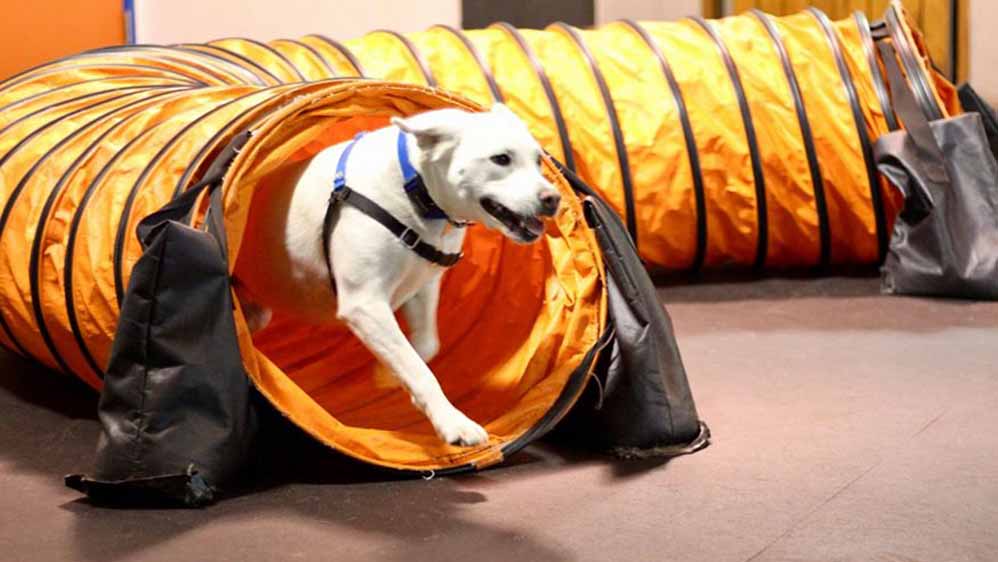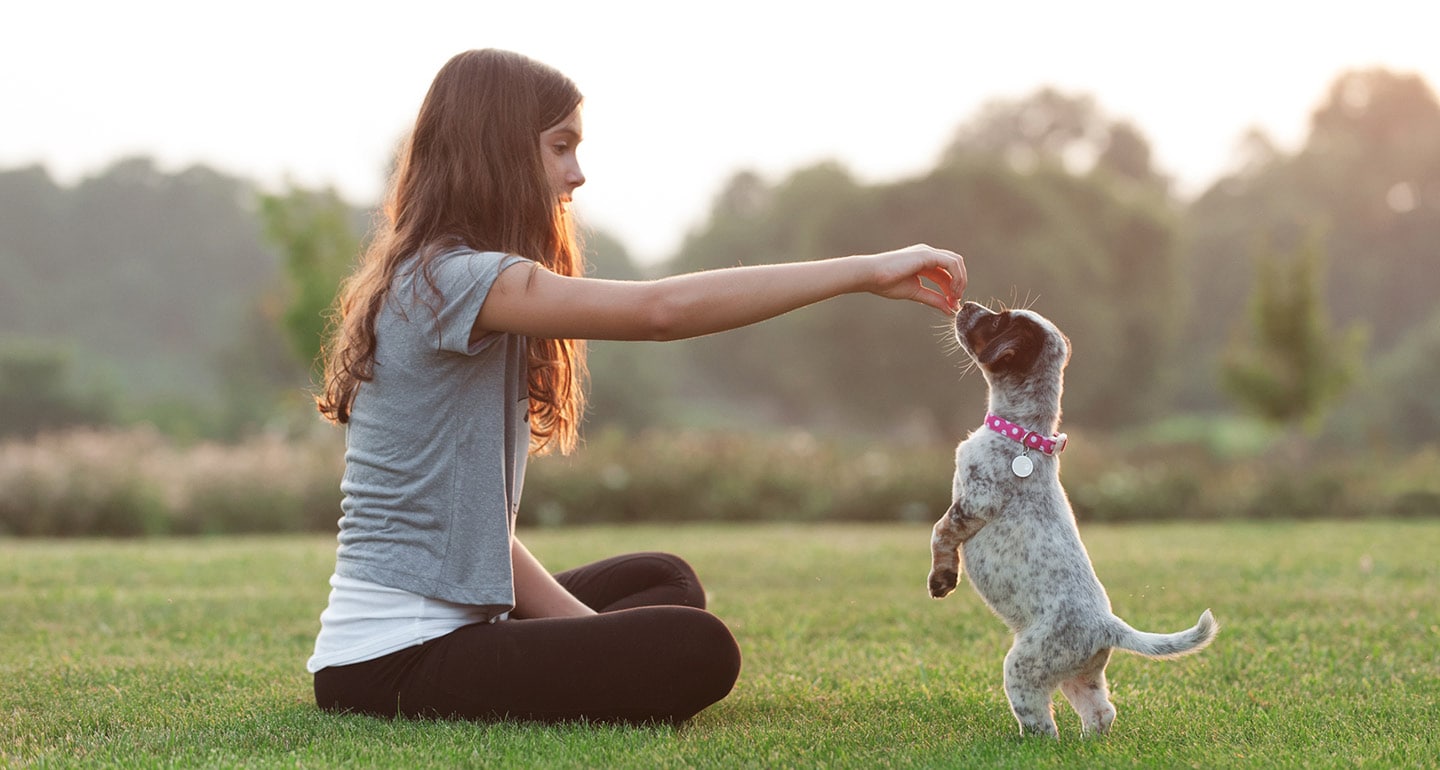Raise Your Skills with Local Dog Training Charlotte Programs
Raise Your Skills with Local Dog Training Charlotte Programs
Blog Article
Unlock Your Dog's Potential: Proven Dog Training Techniques for Success
Reliable pet training is a nuanced process that hinges on recognizing canine habits and employing medically backed methods. By incorporating favorable reinforcement, developing clear commands, and prioritizing socialization, pet dog owners can grow a productive partnership with their animals.
Recognizing Pet Dog Habits
Recognizing canine actions is vital for effective training and promoting a favorable relationship in between dogs and their proprietors. A comprehensive understanding of canine body movement, vocalizations, and social communications is crucial for acknowledging their demands and emotions. Dogs connect primarily with non-verbal signs; as an example, a wagging tail may suggest exhilaration, while pinned ears can signal concern or entry.

Moreover, ecological variables play a substantial function in shaping a canine's behavior. Adjustments in regular, brand-new surroundings, or the presence of unknown individuals can result in stress or anxiety in pets. Acknowledging these triggers allows owners to minimize negative reactions and develop ideal training methods.
Ultimately, a deep understanding of pet habits lays the foundation for effective training techniques, improving both actions and the general bond between the pet dog and its owner. Dog training. This expertise is important for fostering a well-adjusted, satisfied canine buddy
Favorable Support Techniques
Efficient training relies greatly on positive support methods, which have actually been shown to generate considerable cause shaping wanted behaviors in pets. This method entails awarding a dog for displaying specific habits, thereby boosting the likelihood that these habits will certainly be repeated. Incentives can take different kinds, including deals with, praise, playthings, or play, depending on what motivates the private dog.

It is important to slowly phase out incentives as the canine learns the actions, transitioning to periodic reinforcement. This approach preserves the behavior gradually while avoiding dependency on consistent rewards. By concentrating on positive reinforcement, instructors can cultivate a relying on connection with their dogs, advertising a cooperative and healthy and balanced training environment that boosts overall obedience and efficiency.
Establishing Constant Commands
A fundamental element of effective canine training is the facility of constant commands. Uniformity in commands is essential for reliable communication in between the dog and the instructor. When commands are uniform, canines find out to associate certain words with desired habits, which increases the training process and improves understanding.
To develop consistent commands, it is vital that all relative utilize the very same terms and gestures. For instance, if one individual uses "rest" while an additional says "rest down," it can create confusion for the pet. Select clear, unique words for commands and guarantee every person included in the pet dog's training abides by these choices.
Enhance commands via regular method, making sure that the dog receives ample opportunities to more tips here respond properly. When a dog successfully follows a command, prompt favorable support ought to adhere to.
Finally, hold your horses. Developing regular commands requires time and initiative. With devotion and clearness, you will aid your pet establish a strong understanding of assumptions, inevitably causing a well-behaved friend.
Socializing and Exposure
Socializing a pet is crucial for promoting a confident and well-adjusted buddy. This process entails subjecting your dog to a range of environments, individuals, and other pets to establish their social abilities and versatility. Early socialization, preferably between the ages of 3 to fourteen weeks, is essential, as it lays the foundation for a canine's future actions.
During socializing, objective to give positive experiences in various settings, such as parks, active streets, and homes with various other animals. Present your canine to different stimulations, including noises, views, and smells, making certain that each encounter is rewarding. This exposure helps alleviate fear and stress and anxiety, leading the way for an extra resilient canine.
Involving in regulated team play sessions with other canines can likewise boost social abilities, teaching your family pet appropriate communications and boundaries. Focusing on socializing will considerably add to your pet's overall happiness and behavior throughout their life.
Conquering Common Educating Obstacles

Dogs may battle to focus in busy or unknown settings. Gradually desensitize your dog to interruptions by beginning training in a silent atmosphere and slowly presenting more stimulations as they end up being proficient.
Furthermore, behavior problems like jumping or excessive barking can come to be discouraging. Address these by showing alternate behaviors, such as sitting steadly when greeting visitors. Uniformity and persistence are important; enhance preferred habits continually and avoid abuse, which can cause confusion.
Lastly, acknowledge that each pet is distinct, and training timelines might differ. Dressmaker your technique my company to your pet dog's private needs, and seek professional advice if essential. With willpower and the ideal strategies, getting rid of these use this link challenges can result in a trained, satisfied canine companion.
Conclusion
Finally, opening a canine's potential necessitates a detailed strategy that incorporates an understanding of canine actions, the application of favorable reinforcement methods, and the establishment of regular commands. Early socializing and exposure to diverse settings better improve a canine's adaptability and self-confidence. By resolving typical training challenges with customized methods and perseverance, a participating and harmonious connection between pet dog and handler can be promoted, ultimately causing a well-behaved buddy efficient in prospering in different situations.
Efficient canine training is a nuanced procedure that hinges on recognizing canine behavior and using scientifically backed methods.Understanding canine behavior is essential for reliable training and promoting a favorable relationship between pets and their owners.Efficient training counts heavily on positive support techniques, which have been revealed to generate significant outcomes in forming desired habits in pets. When commands are uniform, canines discover to link specific words with preferred habits, which increases the training procedure and enhances understanding.
In final thought, opening a pet's potential necessitates a detailed strategy that incorporates an understanding of canine behavior, the application of positive reinforcement methods, and the facility of constant commands.
Report this page